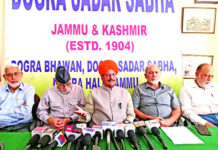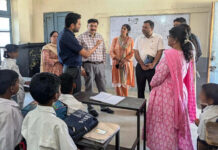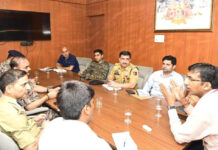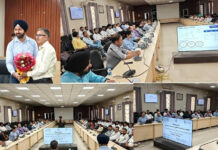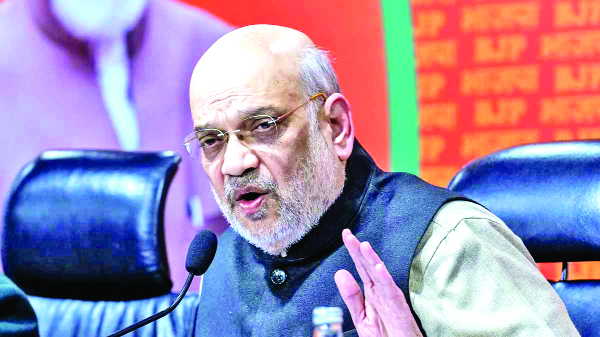DOGRA HERALD BUREAU
New Delhi, Jan 9
The BPR&D is committed to transforming the country’s police into SMART forces to successfully meet various challenges by equipping them with necessary intellectual, physical and organisational resources, Union Home Minister Amit Shah said on Thursday.
Chairing a meeting of the Bureau of Police Research & Development (BPR&D) here, Shah also stressed the importance of multi-stakeholder contributions, including collaboration with institutions of international repute in research studies and projects, according to an official release.
The SMART policing idea was introduced by Prime Minister Narendra Modi at the DGPs conference in Guwahati in 2014. It envisages systemic changes to transform the Indian Police to be: Strict and Sensitive, Modern and Mobile, Alert and Accountable, Reliable and Responsive, Techno-savvy and Trained (SMART).
The home minister said under PM Modi’s leadership, the BPR&D is committed to transforming the Indian police into SMART forces to successfully meet the challenges of policing as well as internal security by equipping them with necessary intellectual, physical and organisational resources.
Shah gave instructions for a globally expanded scope and outreach for BPR&D projects and studies as well as publications to provide maximum benefit to police forces as well as to improve the public image of the police.
He gave directions for enhanced streamlining of the bureau’s work for targeted help to all pillars of the criminal justice system based on their unique requirements.
Shah underlined the need for a ‘Make in India’ model for meeting policing requirements as well as the need for greater involvement of criminal justice system stakeholders, states and Union territories, and the Ministry of Home Affairs for problem identification and effective solutions.
He took an overview of the six divisions of BPR&D as well as outlying units (CAPT Bhopal and CDTIs), their achievements, ongoing tasks, and future roadmap.
The minister also took a special review of the efforts and initiatives by BPR&D towards the implementation of the new criminal laws.
During the discussion, Shah said the BPR&D, the NCRB, prison officials and forensic experts should analyse the modus operandi of crimes.
He said that BPR&D should conduct research to identify the challenges faced in policing at the grassroots level and work towards finding solutions for them.
The home minister appreciated the efforts of the bureau in NCL training and implementation as well as the modernisation of police forces by upgrading existing police and prison processes and practices to tackle new-age challenges.
Shah emphasised the role of BPR&D as the nodal agency for connecting the ministry with all states and UTs. He assured support and assistance to the bureau for its smooth functioning.

